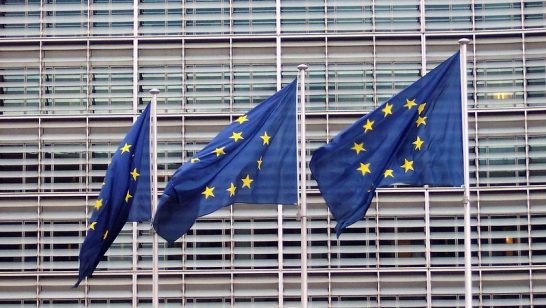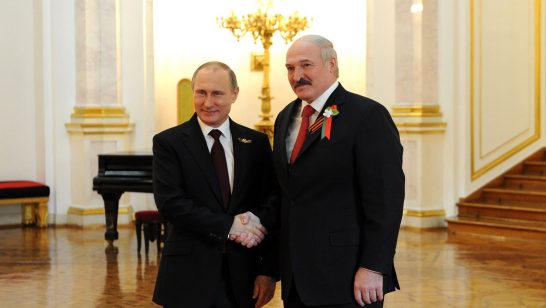On 17 September, the ELN conducted a small roundtable of relevant ELN members and external experts to consider how to move the EU forward on technical standards with the EAEU.
Context
The meeting considered pursuit of a “Lisbon-to-Vladivostok” free trade area to be politically unrealistic. Instead, the focus was on pragmatic technical steps to EU advantage that could lay foundations for greater EU-EAEU mutual benefit as and when the geopolitics became more propitious.
Points of fact
The EAEU is not the same animal as the EU: the EU is about trade liberalisation, the EAEU is not; the EU needs trade rules, Russia as a raw materials exporter needs them less; unlike the EU and its ECJ, the EAEU has no similar dispute resolution system: for example, the EAEU Commission cannot take the EAEU States to court.
That said, the EAEU harmonisation framework can make business in EAEU countries easier for European businesses. EU-EAEU sector-by-sector harmonisation would help further.
EU and EAEU officials are in fact talking. But this is only exchange of information, not negotiation. There are no EU trade restrictions vis à vis Russia (except in relation to goods produced in Crimea). Formal EU-EAEU relations or negotiations are not allowed under current EU policy, but contacts are allowed and some EU-EAEU sectors, such as pharma, are already extensively harmonised.
The post-Crimea geopolitical climate is a major obstacle, although Nordstream 2 is perhaps a bit of a thaw. But EU trade problems with Russia (and, by extension, for EU-EAEU relations) started in 2012, before the 2014 crisis. There was a lack of appetite for harmonisation from Russia. Russia argued that WTO membership was the end of what it could do in terms of trade liberalisation. Today, there remains a general climate of trade irritants. Russia has made provocative moves even in the trade sphere, for example over Champagne. Nothing positive has come from recent bilateral France-Russia talks: the French were told to expect more trouble.
As far as EU-EAEU agreements might be concerned, the EU cannot change its own internal regulations via international agreements. The economies of scale with the EAEU would not be enough for the EU to change its positions on, for example, industrial, phyto-sanitary or food standards.
Brussels has shown flexibility and patience towards the EAEU, for example over Armenia’s accession to the EAEU. But the EU has managed to show greater flexibility in other geopolitical contexts: for example, EU member state Cyprus remains militarily occupied but the EU still has full relations with Turkey.
Russia is not monolithic. There are different factions concerning relations with the EU. Russian pro-EU forces are marginalised because of the situation over EU sanctions.
Matters of judgement
Russia would be happy with more EU-EAEU contacts and happier still with formal talks. It appears that the EAEU would be ready to accept most EU regulations. And there is a good EU trade case for more substantive EU-EAEU dialogue and the establishment of permanent EU-EAEU working groups.
But the EU’s political positioning, recent adverse international developments such as the Afghanistan debacle and Russian moves in Africa, and Russia’s trade practices (for example against Champagne) make it very hard for the EU to move – even if this would be to the commercial advantage of the EU and EU companies. At present, even moves under the rubric of “selective engagement” would raise concerns about sending the wrong signal. The fear is that even technical steps, for example on harmonisation in a given trade sector, would be instrumentalised politically.
So geopolitics are the immediate obstacle to more constructive EU-EAEU relations, even if not the only one. Geopolitics are of even more consequence for EU businesses than is immediately apparent. Such businesses not only comply with EU sanctions but have to heed the “quasi-sanctions” generated by political pressure from Washington.
And yet, even in purely geopolitical terms, lack of EU-EAEU engagement plays against the EU’s long-term interests in the region. Greater EU-EAEU harmonisation and EU trade into the region would boost prosperity, be stabilising and spread EU standards. In the EU’s absence, China is rising and will increasingly set the trade standards, even if the EU rather than China is always likely to be the more attractive trading partner to Russia and other EAEU member states. EU engagement with the EAEU would be a positive geopolitical response to China’s Belt & Road initiative.
Possible ways forward
The sectors that might be considered for greater EU-EAEU harmonisation include the pharma market, the green deal, customs and transport, tax and VAT, mutual certification of test protocols and visa liberalisation.
Of these, visa liberalisation is arguably the least promising. In the EU, visas are a national competence whereas the other sectors are all trade ones that fall to the Commission. Migration matters are a political hot potato. And Russians are already the greatest non-EU recipients of Schengen visas.
Given the pandemic on the one hand and the climate emergency on the other, the pharma market and the green deal might be the two sectors politically easiest for the Commission to move on.
“Dialogue would be an achievement”. “We need to try.” On EU-EAEU sectoral progress, “there is potential for agreement”. These were the broad conclusions of participants.
As ever, each side wants the other to move first. But to get beyond the present situation, it would be distinctly helpful if the EAEU – and specifically Russia – could:
- Signal convincingly that they wished to engage for reasons of trade substance rather than political point-scoring
- Provide some politically helpful gestures, including coming to Brussels for talks rather than the EU going to Moscow.
And on the EU side it would be distinctly helpful if:
- the EAEU Commission could be invited to come to Brussels and if a variety of relevant meetings were arranged
- the EU was readier to recognise Russia’s COVID vaccines (currently an acutely sensitive point in Russia) and,
- following the model of the report that triggered the 1986 Single European Act, EU business dialogue could focus on the cost to the EU of non-cooperation with the EAEU.
European Leadership Network
September 2021
Image: Eurasian Commissionvector version by Thommy, Public domain, via Wikimedia Commons



